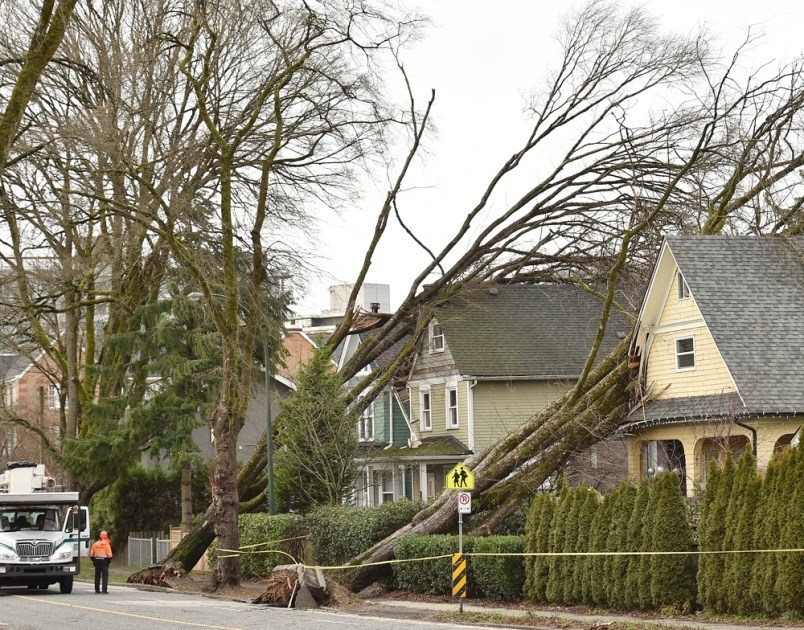British Columbians feel better prepared for winter storm power outages as a result of pandemic stocking up, a BC Hydro study has found.
That, however, has created a false sense of security, the provincial power utility said in a report released Nov. 13 titled “Stocked up but unprepared: How COVID-19 preparation has created a false sense of storm season security.”
And, the report found, most people do not have an emergency kit for more frequent and severe storms causing damage to the province’s power system.
Further, those aged 18 to 34 are least prepared for extended power outages, some 50% admitting to not being ready. Also generally unprepared are those in the Lower Mainland.
BC Hydro Storm Report 2020 by Emma Crawford Hampel, BIV.com on Scribd
A year ago, Hydro reported 60% of British Columbians weren’t ready to handle prolonged power outages resulting from more harsh weather patterns.
BC Hydro data shows a 117% increase in these storms from 52 in 2014 to an average of 113 over the past three years.
The report said the increase in extreme weather events can be linked to a changing climate.
“This has resulted in an average of one million customers being impacted by storm-related power outages annually, including two of the largest individual storms in BC Hydro’s history in 2018 and 2020, the report said.
The report found British Columbians have three top concerns around power outages: two-thirds worry about food in the fridge or freezer spoiling; 16% worry about feeling cold; and, some 10% worry about their cell phone dying.
What the power utility also found was that nearly 20% of British Columbians think they are more prepared for winter storms this year because of COVID-19.
“This sense of preparedness comes from stocking up on household supplies like toilet paper, hand sanitizer, disinfectant wipes, groceries and alcohol – which 44% indicate they have done,” Hydro said.
What they should have, however, is an emergency preparedness kit to last at least 72 hours. That kit should include a first aid kit, bottled water, non-perishable food items, a flashlight and batteries and a battery pack for your cell phone, among other things. An emergency plan should also be ready.
However, more than half of British Columbians do not have an emergency preparedness kit and most do not plan to purchase one this winter. Indeed, some 30% admitted they had taken no steps to prepare for an outage.
The Preliminary Strategic Climate Risk Assessment for British Columbia released by the Ministry of Environment and Climate Change Strategy in July 2019 said increasing extreme weather events in coming years could cause disruptions to power transmission, transportation and water; other infrastructure services could last for weeks depending on the severity of flood damage and number of people affected, causing a major impediment to day-to-day life.
@jhainswo



